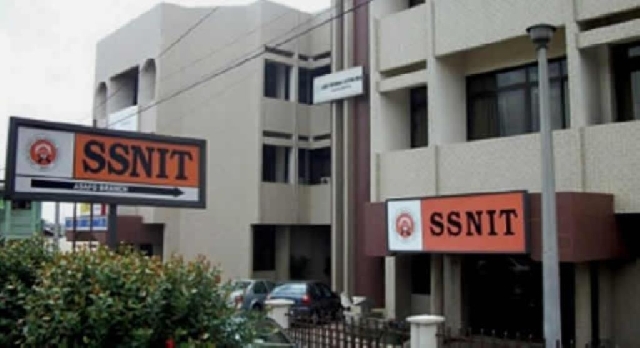ILO warns SSNIT’s reserves’ll dry up by 2036
 SSNIT head office
SSNIT head office
The Social Security and National Insurance Trust (SSNIT) in Ghana faces a looming financial crisis, with its reserves projected to dry up by 2036, according to a recent report by the International Labour Organisation.
Initially functioning as a Provident Fund, SSNIT expanded its services to include accident, old age, disability, and death coverage, becoming a vital support system for emigration.
However, since its transformation into a Social Insurance Pension Scheme governed by the PNDC law 247 in 1991, SSNIT has grappled with increasing administrative expenses, which now threaten the sustainability of the scheme.
Despite serving 1.6 million Ghanaians, roughly 16% of the country's workforce, SSNIT struggles with rising operational costs, diverting resources from beneficiaries.
The report reveals that from 2008 to 2020, the scheme's average return on assets was a mere 0.9% after adjusting for inflation, contrasting starkly with the 17.5% average return on Ghana's 91-Day Treasury Bills over the same period.
Actuarial projections paint a grim picture, indicating that an increase in contribution rates is imperative for the scheme's longevity.
The PAYG rate, representing the contribution needed to cover all scheme expenditures, is expected to rise from 11.5% in 2020 to 29.5% by 2095, further straining future generations.
Notably, the report highlights that annual contributions alone will not suffice to cover expenditures, necessitating the use of investment income until 2028.
However, by 2029, the scheme will face a deficit, depleting reserves entirely by 2036.
This dire situation underscores the urgent need for government intervention, with the International Labour Organisation recommending increased government contributions to mitigate the risk of reserve depletion.
In summary, SSNIT's financial woes require immediate action to safeguard the welfare of retirees and ensure the scheme's sustainability for future generations.
Source: Classfmonline.com
Trending News

Volta Regional Health Directorate probes alleged narcotics case involving official driver
02:07
Nana Kwame Bediako disputes UK court judgment over alleged $14.9m debt
16:40
For the sake of the soul and spirit of NPP, vote Bryan Acheampong -Yeboah to delegates
17:32
African Trade Chamber appoints Bahamian Senator Barry Griffin to board
00:57
NAiMOS officer shot, armed assailant killed during anti-galamsey operation in Bono Region
07:53
A-Plus urges Ghanaians to keep NPP in opposition to “learn governance”
11:47
MoH orders investigation into Fourth Estate report on Ridge Hospital
14:32
GAF dismisses claims of HIV-related medical failures among applicants
20:13
COCOBOD CEO must account for costs after case dismissal -Edem Senanu
16:42
IGP Special Operations Team arrests military officers for possession of substances suspected to be Indian hemp in Tamale
17:19




